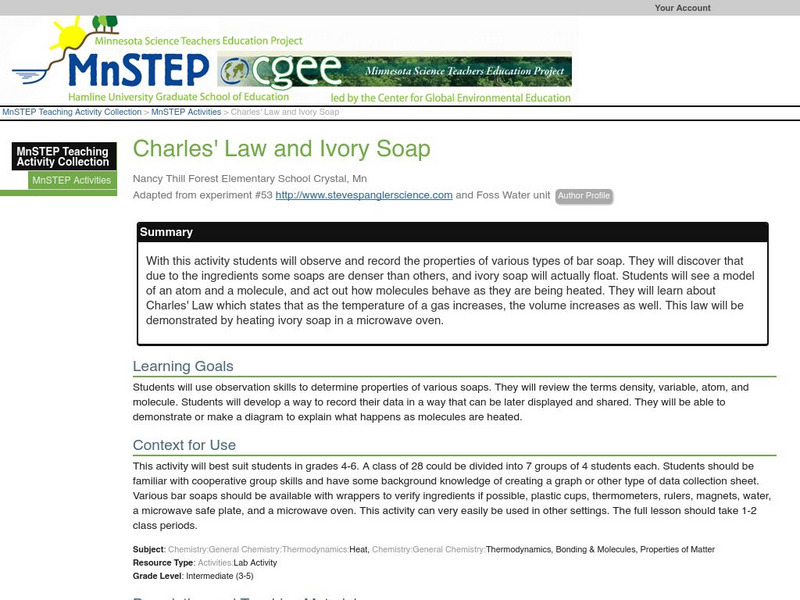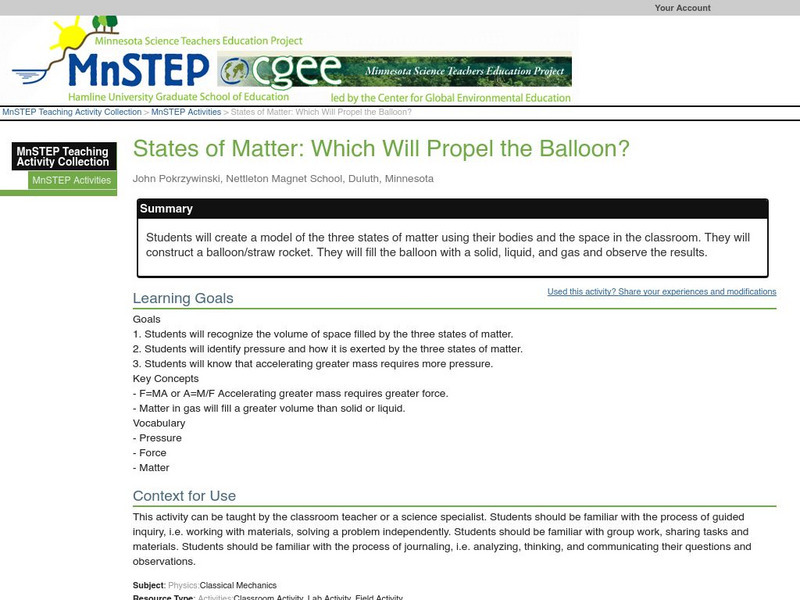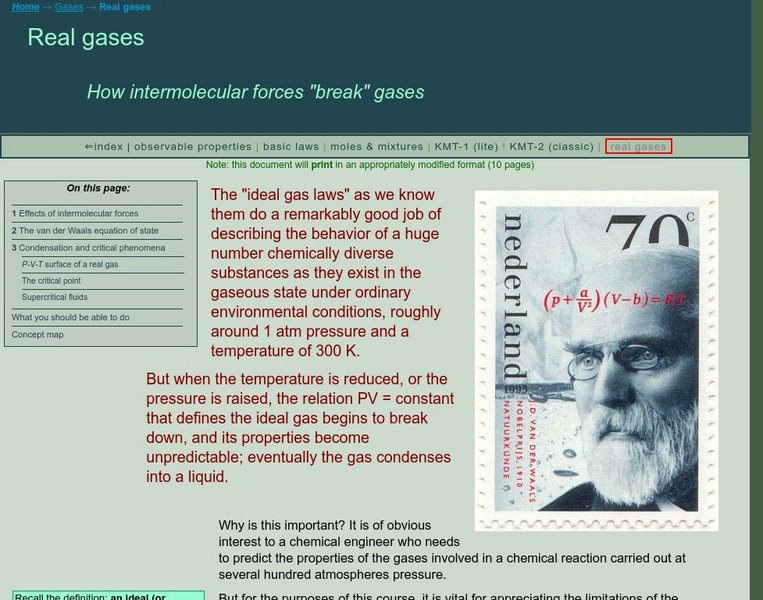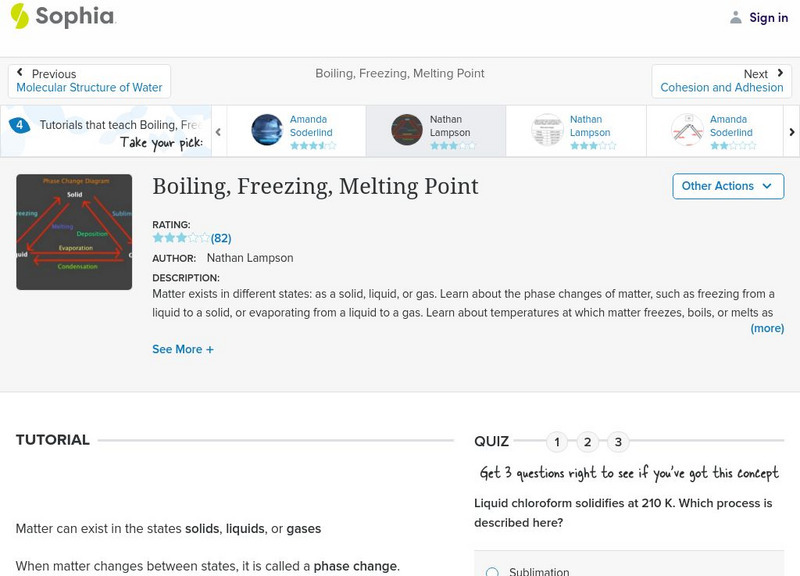Hi, what do you want to do?
PBS
Pbs Teachers: Hot Air Balloon Experiment
Explore how heat affects the density of air by building and flying a hot air balloon using large plastic bags and the hot air from an electric hairdryer.
National Earth Science Teachers Association
Windows to the Universe: Ammonia Nh3
Read about the chemical compound ammonia and learn how it is part of the Nitrogen Cycle.
University of Colorado
University of Colorado: Ph Et Interactive Simulations: University of Colorado: States of Matter: Basics
An interactive simulation will heat, cool and compress atoms and molecules. Watch as they change between solid, liquid and gas phases. Recognize that different substances have different properties which will affect the temperatures for...
PBS
Pbs Learning Media: A Hole in the Sky
This video segment adapted from Interactive NOVA profiles two scientists who were surprised in 1984 to discover a hole in our atmosphere's ozone layer as big as the United States. [3:47]
Vision Learning
Vision Learning: Three States of Matter
Concept animation compares molecular movement of solids, liquids, and gases.
Encyclopedia of Earth
Encyclopedia of Earth: Physics & Chemistry: Halocarbon
Article explaining what halocarbons are, where they occur in nature as well as man-made sources, how they are used, and their negative environmental impact. (Published: October 28, 2011)
American Chemical Society
Middle School Chemistry: Changing State: Condensation
Students investigate water cycle processes by testing how cooling affects the rate of condensation of water vapor.
Science Education Resource Center at Carleton College
Serc: Charles' Law and Ivory Soap
With this activity learners will observe and record the properties of various types of bar soap. They will discover that due to the ingredients some soaps are denser than others, and ivory soap will actually float. Students will see a...
Simon Fraser University
Chem1 Virtual Textbook: Some Consequences of Random Molecular Motion
The General Chemistry Virtual Textbook, or Chem 1, is broken into several sections covering various aspects of topics related to chemistry. This section deals with random molecular motion and topics such as diffusion and effusion.
American Chemical Society
Middle School Chemistry: Can Gases Dissolve in Water?
Use this interactive animation to find out about whether or not gases dissolving in water.
Science Education Resource Center at Carleton College
Serc: Mn Step: States of Matter: Which Will Propel the Balloon?
For this activity, students take part in a simulation of the three states of matter where they role play being molecules. They then create simple balloon rockets and must explain why a gas is the only state of matter that can cause the...
Simon Fraser University
Chem1 Virtual Textbook: Effects of of Intermolecular Forces
The General Chemistry Virtual Textbook, or Chem 1, is broken into several sections covering various aspects of topics related to chemistry. This section deals with intermolecular forces and topics including repulsive forces and...
Sophia Learning
Sophia: Boiling, Freezing, Melting Point: Lesson 2
This lesson will introduce the phase changes that occur at the boiling, freezing, and melting points. It is 2 of 4 in the series titled "Boiling, Freezing, Melting Point."
Sophia Learning
Sophia: Boiling, Freezing, Melting Point: Lesson 4
This lesson will introduce the phase changes that occur at the boiling, freezing, and melting points. It is 4 of 4 in the series titled "Boiling, Freezing, Melting Point."
Sophia Learning
Sophia: Boiling, Freezing, Melting Point: Lesson 1
This lesson will introduce the phase changes that occur at the boiling, freezing, and melting points. It is 1 of 4 in the series titled "Boiling, Freezing, Melting Point."
















